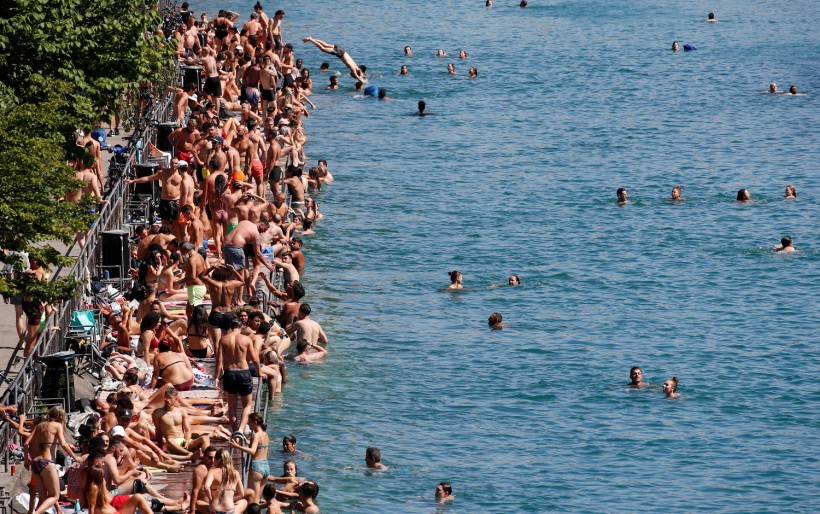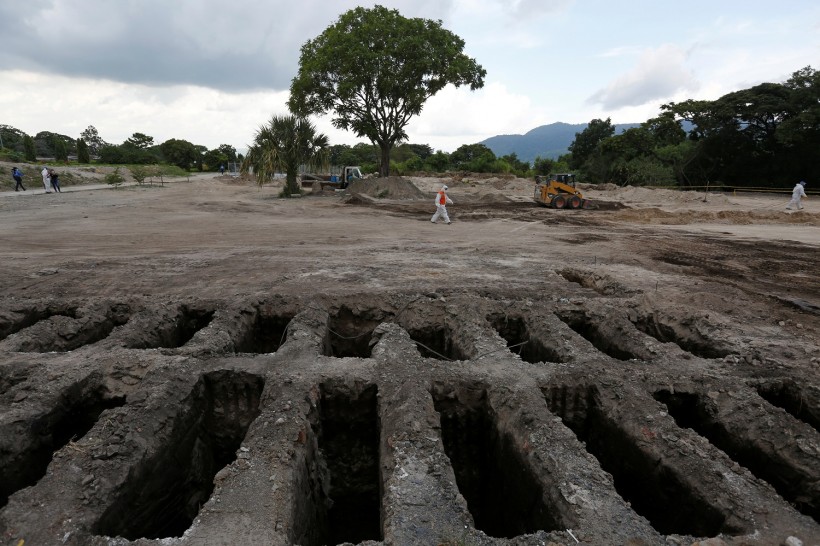Scientists worldwide found that a 1°C temperature rise is related to a 15% decline in coronavirus-related deaths.
King's College London Epidemiologist Tim Spector who runs the COVID Symptom Tracker app noted that summer is a 'window of opportunity' to eliminate the virus in Europe. According to Daily Mail, the risk of severe COVID-19 cases is lower with warmer and more humid weather, but higher when it is cold.
Prof. Spector said BBC Radio 4 on Tuesday, July 21, that seven hospitals in Europe have recorded data, and temperatures and records show that every rise in temperature has reduced mortality by about 15%. "So generally, as the weather got warmer the severity of the disease reduced and mortality reduced over time," he added.

People enjoy hot summer weather on the banks of the Limmat river, as the spread of the coronavirus disease (COVID-19) continues, in Zurich, Switzerland July 20, 2020.
Professor Spector also reviewed the data from his COVID Symptom Tracker app's 37,000 users in the U.K. He found people appear to have a shorter, less severe illness as the weather becomes warmer.
The professor also worked with other scientists worldwide in studying nearly 7,000 hospitalized COVD-19 patients in the UK Italy, Croatia, Finland, Spain, Germany, Poland, and China.
Overall, intensive care demand in European hospitals fell by 2.2% per day while patients requiring ventilators dropped by 2.1% between February and May.
While deaths and severity of cases fell as summer entered Europe, the same trend was not seen in China where most of the cases happened during winter between December and February.
However, researchers did not provide the exact numbers for people who were hospitalized and died. However, they claimed that the difference in the disease's strength was too huge to be caused by enhanced remedies.
Meanwhile, Professor Spector said that aside from the actual temperature, it is similarly important to also consider the humidity.
Researchers also noted that humid East Asian countries did not have high COVID-19 deaths like those in European nations. For instance, Japan and Singapore only had 4% and .06% of deaths, respectively, which is much lower than Britain's 15.4% and Italy's 14%, according to the World Health Organization.
Winter may come with COVID-19 second wave
While the death rates are lower during summer, thousands of people continue to get infected in the United Kingdom. Professor Spector is worried that the end of the hot season is fast approaching and winter may trigger the second wave.

Recently dug graves are seen at an area for victims of the coronavirus disease (COVID-19), at La Bermeja cemetery, as the coronavirus disease outbreak continues in San Salvador, El Salvador July 21, 2020.
A BBC report said that scientists have been giving warnings about the higher risks during winter for months, not only with coronavirus but also with other viruses like colds and flu.
While the U.K. only recorded 1,100 deaths for July, scientists claimed it could reach 120,000 as the second wave of infections happens during winter.
According to a "reasonable" worst-case scenario model they created, scientists suggest that hospitals may record COVID-19 deaths ranging from 24,500 to 251,000, particularly in January and February.
"This is not a prediction - but it is a possibility," said University Hospital Southampton NHS Trust Prof Stephen Holgate, a respiratory specialist who led the study.
The research also stated that the coronavirus can longer survive at a lower temperature, but scientists noted that reducing the risk is possible "if we take action immediately."
Read also: Trump's 'Heat vs COVID-19' Theory May Work, Based on Studies





